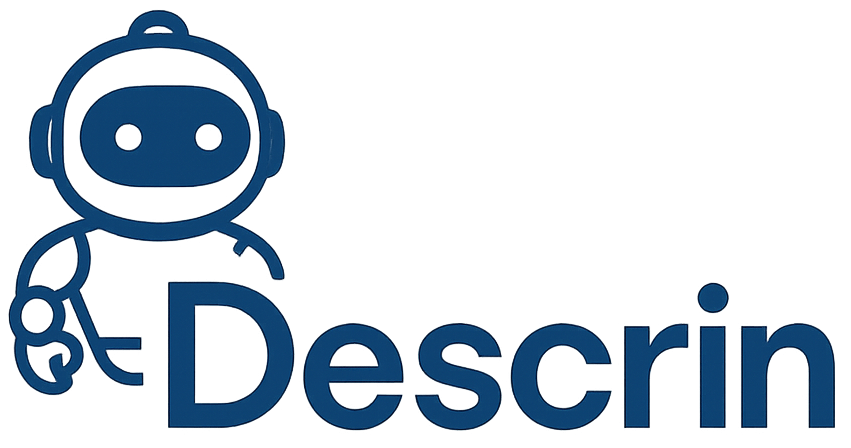Top Customer Support Tools for Exceptional Service
Imagine reaching out for help and getting stuck in endless hold music or confusing menus. Now imagine getting quick, personalized help that feels made just for you. That’s what the right customer support tools can do.
In today’s fast world, how well your team connects and solves problems is key. It builds trust and loyalty with your customers.
Choosing the right customer support tools is more than just solving tickets. It’s about building strong relationships. Tools like Zendesk and HubSpot show how AI-driven ticketing, live chat, and CRM systems can turn problems into chances.
With free trials and demos, you can see what works best for your team.
Table of Contents
Understanding the Landscape of Customer Support Tools
Getting good at customer service software means knowing what they do and how they’ve changed. These tools help businesses talk to customers better. They mix technology and strategy to get results.
Today’s customer service software does more than just track tickets. They have live chat, AI, and work across different platforms. Here’s how they work:
Defining Customer Support Tools
Customer service software, like Zendesk and Salesforce, handles all customer interactions. They have key features such as:
- Automated ticket routing to cut down wait times
- Live chat for quick help
- Data analytics to find service patterns
The Evolution of Customer Service Software
Old systems just dealt with emails and phone calls by hand. Now, tools use AI to guess what customers need and offer personalized help. Here’s how they’ve grown:
- 1990s: Basic ticket tracking systems
- 2010s: Cloud-based platforms like Freshdesk
- 2020s: AI-driven insights in tools like Intercom
Knowing this history helps you pick the right tools for your team.
Key Features of Leading Help Desk Solutions
Modern help desk solutions focus on key features that boost efficiency and customer happiness. They offer advanced ticket management, real-time chat, and deep CRM connections. These elements work together to make a support system that fits your business needs.
Robust Ticketing Systems
Ticketing systems are the heart of any good help desk. They sort, prioritize, and send tickets to the right people. With features like automated escalations and SLA tracking, no request is left behind. Tools like Zendesk and Freshdesk use AI to cut down response times and solve issues faster.
Integrating Live Chat Platforms
Live chat lets you talk to customers right when they need it. Top platforms like LiveChat and Intercom add chat widgets to websites. This way, you can quickly help with small issues and get feedback for future improvements.
Enhancing CRM Integration
CRM integration links customer history with support chats. Tools like Salesforce Service Cloud and HubSpot CRM connect help desk data with customer profiles. This gives agents a clear view of what customers have done before.
| Feature | Description |
|---|---|
| Real-Time Data Sync | Updates customer records instantly during support interactions |
| Automated Workflows | Triggers actions like email notifications based on CRM data |
| Unified Dashboards | View ticket history alongside sales and marketing data for holistic insights |
By combining these features, help desk solutions offer a unified support experience. This boosts agent productivity and customer loyalty.
Evaluating Live Chat Platforms for Real-Time Assistance
Effective live chat platforms make real-time talks smooth, giving customers quick help. Tools like Intercom and Drift focus on speed and fitting in with your setup. They’re key for cutting wait times and improving customer happiness. Think about these points when picking one:
- Proactive messaging to engage users before they ask for help.
- Integration with existing CRM or website tools.
- Analytics showing chat performance and user behavior trends.
| Feature | Intercom | Drift |
|---|---|---|
| Proactive Engagement | Automated triggers based on visitor actions | Custom greeting templates |
| Integration | CRM and helpdesk systems | Website and marketing tools |
| Analytics | Conversation metrics and reporting dashboards | Visitor tracking and conversion data |
Choose a live chat platform that fits your team’s style. Look at features like automation and integration to make sure support flows well.
Maximizing Efficiency with Ticketing Systems
Effective ticketing systems are key to modern customer support. They use automation and smart workflows to manage ticket queues well. This lets your team solve problems quicker and focus on important tasks.

Automated Ticket Assignments
Automation makes things clear. Advanced ticketing systems send tickets to the right team fast. They use keywords, user data, or rules to decide. This cuts down manual work and makes sure no request is missed.
- Automated categorization based on ticket content
- Real-time updates to agents about new assignments
- Reduced resolution times by 30% or more
Prioritizing Customer Issues
Not all tickets need the same urgency. The best ticketing systems let you sort issues by how urgent and important they are. For example:
- High-severity tickets (e.g., system crashes) get immediate action
- Medium-priority requests handled within 24 hours
- Low-priority inquiries resolved during off-peak hours
These features create a cycle: faster responses make customers happier. This also lets agents work on harder cases. With automation and smart sorting, ticketing systems make complex workflows easier.
Integrating Customer Support Tools with CRM Platforms
CRM integration changes how we handle customer service. It links support tools with CRM platforms. This way, all customer interactions, like emails and live chats, are recorded in their profiles.
Your team can quickly see what customers have bought before, their past issues, and what they like. This helps them respond faster and more personally.
- Automates data transfer between support tickets and CRM records
- Eliminates manual updates by syncing real-time interaction details
- Reduces resolution times by providing full customer history to agents
Companies like HubSpot use CRM integration to track every support request. They see it alongside marketing and sales data. This helps them spot trends, like common issues in certain products.
When a customer contacts support, agents can see their past purchases and complaints. This means they don’t have to ask the same questions over and over again.
Tools like Salesforce Service Cloud or Zoho CRM have pre-built connectors for popular support platforms. These integrations show important metrics, like how fast agents respond and how quickly they solve problems. This helps teams find and fix any issues in their service.
Seamless CRM integration also builds trust with customers. When agents know your history, they can solve problems before they become big issues. For example, a customer with a tech problem might get a solution based on their past purchases. This is only possible with integrated systems.
Leveraging Omnichannel Support Solutions
Today’s customers want to reach out in their own way. Omnichannel support means your team is ready to help, no matter the channel. Whether it’s email, social media, or live chat, you offer a unified experience. This builds trust and loyalty with your customers.

“Omnichannel systems eliminate gaps between platforms, ensuring every interaction feels like part of a single conversation.” – Customer Experience Report 2023
Seamless Communication Across Channels
Platforms like Zendesk and Slack work together seamlessly. Agents can see a customer’s history right away. This means messages, emails, and chat logs are all in one place. It cuts down on response times and mistakes.
Ensuring Consistent User Experience
Customers don’t like it when things don’t match up. If phone calls and website chats don’t have the same tone, trust can drop. Omnichannel tools help keep everything consistent. They standardize responses, training, and knowledge bases.
Utilizing Customer Feedback Tools
Tools like Medallia or SurveyMonkey help you get feedback right after a support call. You can spot trends like slow responses or product issues quickly. This helps you improve faster.
- Track satisfaction scores via automated email surveys
- Identify channel-specific pain points with sentiment analysis
- Adjust training programs using recurring feedback patterns
By using omnichannel solutions and customer feedback tools, you can make every interaction better. Focus on tools that connect feedback with your CRM. This way, you can understand what your customers really want.
Ensuring Quality with Customer Feedback Tools
Customer feedback tools help your support team understand what customers need. By linking these tools with support ticket software, you get instant insights to improve your service. Platforms like Zendesk and Freshdesk help you track how happy customers are and focus on the most important issues.
Monitoring Satisfaction Scores
Keep an eye on scores like CSAT (Customer Satisfaction Score) and NPS (Net Promoter Score) to see how happy customers are. Tools like HubSpot’s feedback surveys make tracking scores easy and connect them to your support ticket software. Dashboards show trends, like a sudden drop in satisfaction, so you can act fast.
Gathering Actionable Insights
Feedback is more than just data; it’s a guide. Tools like Zendesk’s Voice of the Customer module look at text feedback to find common problems. For example, if 30% of customers talk about billing issues, you can update FAQs or train staff to cut down on future tickets. Here’s how leading tools compare:
| Tool | Satisfaction Scoring | Actionable Insights | Support Ticket Integration |
|---|---|---|---|
| Zendesk | CSAT/NPS surveys | AI-powered sentiment analysis | Native integration |
| Freshdesk | Custom survey templates | Trend analytics | Direct ticket creation |
| HubSpot | Automated post-interaction surveys | Segmented reporting | CRM-linked tickets |
Using feedback tools with support ticket software helps you solve problems before they start. Use these insights to update your knowledge base, train your team, or even change your product. Listening and acting on feedback is the first step to getting better.
Understanding Support Ticket Software and Its Benefits

Support ticket software makes it easier for businesses to manage customer questions. It turns requests into tickets, so every issue is tracked and fixed quickly. It also links with omnichannel support solutions, combining data from email, chat, and social media. This gives a complete picture of how customers interact with you.
Streamlined Ticket Management
Good ticket systems cut down on manual work. They use auto-categorization and priority tags to save time. Here’s how they help:
- Auto-sorting: Tickets go to the right team based on keywords or channel.
- Transparency: Customers get updates in real-time through self-service portals.
- Integration: It connects with CRM tools, so you don’t have to repeat customer info during calls.
Analytics for Continuous Improvement
Analytics help make better choices. Ticket software tracks important metrics to show where you can improve:
| Metric | What It Measures | Impact |
|---|---|---|
| First Response Time | Average time to reply to a ticket | Improves customer patience and satisfaction |
| Resolution Rate | Percentage of tickets solved within targets | Highlights team performance gaps |
| Channel Trends | Which platforms get most inquiries | Directs resources to high-traffic touchpoints |
These insights help you tweak strategies, train staff, and refine processes. Over time, this means faster fixes and happier customers.
Comparative Analysis: Customer Service Software Options
Choosing the right customer service software is key. It’s about finding the right mix of features, cost, and growth potential. Let’s look at the top choices to see which one is best for your business:
Zendesk has strong ticketing and support across many channels. It starts at $49/month per agent, growing with your team. It’s perfect for bigger businesses needing lots of automation but might be too much for smaller teams.
Help Scout shines with easy-to-use interfaces and a focus on email support. It starts at $24/user/month. It’s a good choice for teams of all sizes but doesn’t have live chat like some others.
HubSpot Service Hub works well with CRM tools, offering free plans for up to 100 tickets/month. Paid plans start at $400/month. It’s best for companies that focus on sales, as it’s more geared towards handling incoming requests.
- Zendesk: Advanced automation tools, scalable plans
- Help Scout: Simple setup, email focus, lower entry cost
- HubSpot Service Hub: CRM alignment, free tier for basic needs
Think about your team size and what you really need. If you’re all about integrating with CRM, HubSpot is your go-to. For live chat and ticketing, Zendesk is the way to go. Help Scout is simpler, making it great for smaller teams.
Conclusion
Choosing the right customer support tools is crucial for today’s businesses. The right tools, like ticketing systems and live chat, make interactions smooth. They also boost efficiency. Software like Zendesk or HubSpot CRM helps turn customer questions into chances to build loyalty.
Omni-channel support solutions, from Intercom or Salesforce, make sure customers get the same experience everywhere. Feedback tools show how happy customers are. Analytics in software like Freshdesk help find ways to improve.
Every business is different. Look at what each tool offers and see how they fit with your team. Choose systems that grow with you and meet changing customer needs. The right tools can make your support stand out, leading to happier customers and success.
FAQ
What are customer support tools?
Customer support tools are software solutions for businesses to offer great customer service. They include help desk solutions, live chat platforms, and ticketing systems. These tools aim to improve customer interactions and satisfaction.
How have customer support tools evolved?
Customer support tools have changed a lot. They’ve moved from old methods to new, AI-based tools. This change is because businesses want to respond quickly and give personalized experiences. Brands like Zendesk and HubSpot are leading this change.
What key features should I look for in help desk solutions?
Good help desk solutions have key features. They should have strong ticketing systems for managing queries. They should also work well with live chat platforms and CRM systems. This makes customer service more efficient and effective.
Why is live chat important for customer assistance?
Live chat is key for quick customer help. It lets businesses talk to customers right away. This makes communication smooth and cuts down wait times.
How can ticketing systems improve support efficiency?
Ticketing systems make support better by automating tasks. They assign tickets quickly and prioritize them based on urgency. This ensures fast and effective issue resolution.
How does CRM integration enhance customer support?
CRM integration makes customer service better. It keeps track of customer histories and makes managing interactions easier. This leads to happier customers.
What are omnichannel support solutions, and why are they important?
Omnichannel support solutions let customers communicate across different channels easily. They’re important because they give customers a consistent experience. No matter how they choose to interact, their needs are met.
How can I leverage customer feedback tools?
Customer feedback tools help keep support quality high. They track satisfaction and provide insights. This lets you improve your service and meet customer needs better.
What role does support ticket software play in customer service?
Support ticket software makes managing customer queries easier. It uses analytics to improve service. It helps track performance and find trends for better practices.
How do I choose the right customer service software for my organization?
Choosing the right software involves comparing different options. Look at pricing, scalability, ease of integration, and features. Pick the one that best fits your business needs.



